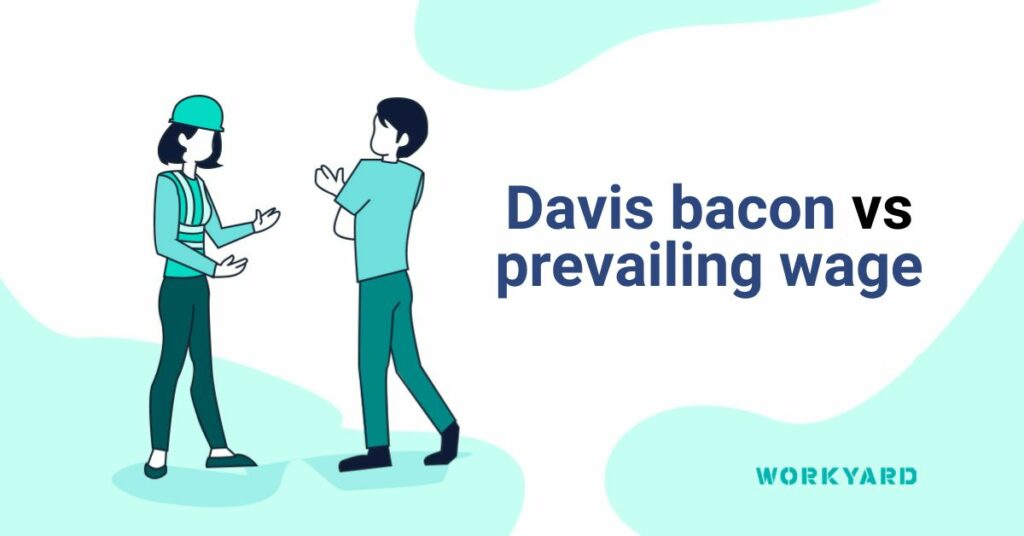This question is about U.S. Labor Laws, Davis Bacon Wages and Prevailing Wages.
Davis Bacon vs Prevailing Wage
Davis Bacon and prevailing wage laws are both intended to ensure fair compensation for workers on construction projects, but they differ in scope, application, and enforcement. Here’s a breakdown of the key differences between Davis Bacon and prevailing wage laws.
Scope and Coverage
- Davis Bacon Act: The Davis Bacon Act applies specifically to federally funded construction projects exceeding $2,000. It requires contractors and subcontractors to pay prevailing wages and fringe benefits to workers on these projects, based on rates determined by the U.S. Department of Labor.
- Prevailing Wage Laws: Prevailing wage laws, on the other hand, encompass broader state or local mandates that require payment of prevailing wages on public works projects, regardless of federal funding. These laws may apply to construction projects funded by state or local governments, as well as certain private projects subject to government contracts or incentives.
Determination of Wage Rates
- Davis Bacon Act: Under the Davis Bacon Act, prevailing wage rates are determined by the U.S. Department of Labor based on surveys of wages paid to workers in the locality where the construction project is located. These rates are specific to each trade or occupation involved in the project.
- Prevailing Wage Laws: Prevailing wage rates under state or local prevailing wage laws are similarly determined based on surveys of wages paid in the relevant geographic area. However, the process for determining prevailing wage rates may vary depending on the jurisdiction and the specific requirements of the prevailing wage law.
Enforcement and Compliance
- Davis Bacon Act: The Davis Bacon Act is enforced by federal agencies responsible for overseeing federally funded construction projects, such as the U.S. Department of Labor and federal contracting agencies. Contractors and subcontractors found in violation of the Davis-Bacon Act may face penalties, including monetary fines and contract termination.
- Prevailing Wage Laws: Enforcement of prevailing wage laws varies by jurisdiction but often involves state or local labor agencies responsible for monitoring compliance with labor standards on public works projects. Contractors and employers found in violation of prevailing wage laws may face similar penalties, including monetary fines and contract sanctions.

References
- 1
Source (FMD CPAs). “What Is The Difference Between Prevailing Wage Act And Davis-Bacon Act?” Accessed on March 19, 2024.